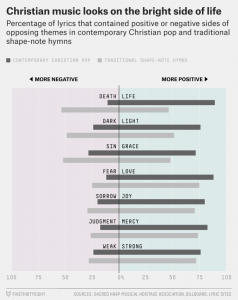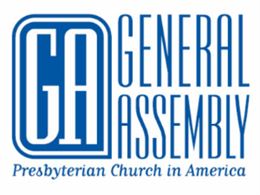Pastoral Backstory – June 9th, 2016

June 9th, 2016

Before last night LeBron found himself in a quandary. He and his Cleveland Cavaliers had lost two straight to the defending NBA champion Golden State Warriors. This despite having practically coasted through these playoffs, losing only two games in the last 12.
But this is sport. Your past may be prologue but it’s no portent of your present. And one has no business playing unless one is both desirous of winning and also capable of losing. One must learn to live with the “lament” of coming up short while not failing to savor the sweetness of triumph when it comes.
 If you’ll permit a rather large leap between a pedestrian analogy and a principle of greater import, Leah Libresco wrote a piece last week at that site for geeky statisticians, Five-Thirty-Eight (which we’ve referenced before), which took a simple inventory of Christian praise music of late. As is common with much contemporary analysis of the state of Christian music (however you prefer to define the parameters of what constitutes such), she compared the number of instances of positive themes against those expressing weakness and lament, and deduced from the sheer numbers (see the chart at right) that Christian worship may suffer from an overly sanguine view of the world, faith, and our own heart. Praise of triumph we get–lament not so much. That was her takeaway. (She has since written a follow-up, mostly of some responses she got to her essay.)
If you’ll permit a rather large leap between a pedestrian analogy and a principle of greater import, Leah Libresco wrote a piece last week at that site for geeky statisticians, Five-Thirty-Eight (which we’ve referenced before), which took a simple inventory of Christian praise music of late. As is common with much contemporary analysis of the state of Christian music (however you prefer to define the parameters of what constitutes such), she compared the number of instances of positive themes against those expressing weakness and lament, and deduced from the sheer numbers (see the chart at right) that Christian worship may suffer from an overly sanguine view of the world, faith, and our own heart. Praise of triumph we get–lament not so much. That was her takeaway. (She has since written a follow-up, mostly of some responses she got to her essay.)
I forwarded the article to our worship team, which elicited several thoughtful and spirited responses. Their estimations were right to implicitly ask certain questions: Does the fulness of the Christian life–both in its joy and its struggle–require a commensurate distribution of themes both of hope and of lament in its worship? The acute experiences of emptiness, confusion, and persecution notwithstanding, doesn’t the truth of the gospel warrant a greater abundance of music related to the source of our joy? Libresco is fine to put into a spreadsheet hard data about the words and themes of current music, but one might reasonably quibble with the deductions she makes. Without casting aspersions at her analysis, were she to put the words and themes of just the New Testament into her same number-cruncher, would she also critique those authors for the inevitable superabundance of buoyant language? “Dear Paul, about your predilection toward positivity…”
Numbers and analysis aside, Libresco is still right to ask us whether we sufficiently make room for lament as we give time to praise. That is to say, are we honest enough to admit our weakness, our confusion, our struggle to believe–not as a badge of courage but as a genuine cry for divine assistance? “I believe–help my unbelief!” Lament is as much an opening of ourselves to the Lord as our praise is. Even if we are bewailing what feels like His absence, we are still addressing Him as one paradoxically present to us. That is why we ought not fear giving voice to our lament; it is just another expression of faith.
But perhaps this discussion is best conducted, not in relatively insulated, academic contexts, but where the experience of lament beckons believers to take heart and find reason to praise. Like where persecution rains down from the sky.
All stories of persecution are sombre. The book we used to frame last Sunday’s sermon, Shusaku Endo’s Silence, paints a brutal picture of the toll persecution takes both in body and in spirit.
But not all instances of persecution are absent light or hope. These children in the video below were uprooted from their homes by ISIS in 2014. Here this chorus of 133 sings in Aramaic in Northern Iraq at the occasion of their first communion.
They embody clearly that synthesis of lament and praise we find practiced so widely in the Psalms. They have reason to weep; they’ve still found faith to praise.
How long, O Lord, will you look on?
Rescue me from their destruction,
my precious life from the lions!
I will thank you in the great congregation;
in the mighty throng I will praise you.
Psalm 35:17-18
A bit more on persecution:
 Near the end of the sermon I mentioned Makoto Fujimura’s Endo-inspired work, _Silence and Beauty _(description here). You can read a sample chapter of that book by clicking here. (Courtesy: Fuller Seminary)
Near the end of the sermon I mentioned Makoto Fujimura’s Endo-inspired work, _Silence and Beauty _(description here). You can read a sample chapter of that book by clicking here. (Courtesy: Fuller Seminary)- While we tried to arrive at a clear sense of what constitutes persecution, there are of course myriad forms that, while not violent, are nonetheless pointed and personal. One name we mentioned during Q&A was the sociologist (and respectful non-theist), Jonathan Haidt. Not long ago he pointed to the statistic in his field that revealed a remarkable paucity of more conservative perspectives. But it’s more than a discrepancy. An intentional program of exclusion exists within faculties and other entities dedicated to work in sociology. Again this week, Haidt brought to our attention the experience of George Yancey, an African-American who is also a Christian and a sociologist. His story authenticates Haidt’s statistics.
- And as we also said in Q&A, the church itself has been its own sordid example of persecuting those with whom one segment takes issue. Paul surely confronted Peter when he saw the latter walking out of step with the gospel (Gal. 2). But the church has taken doctrinal disagreements as a pretext for some of the grossest uncharitableness against fellow brethren. One example the wider world points to as a putative example of the church’s allegedly backwards thinking and institutional danger is its handling of the eminent astronomer Galileo Galilei. As the story is typically told, the groundbreaking scientist (though all said, he was largely following in the steps of others before him) collided with church teaching, thereby both revealing and further cementing a centuries-long adversarial posture toward the scientific enterprise. Well, not so fast. Derrick Peterson (whom we’ve appealed to before) over at his well-researched blog, agreatercourage, unpacks that tale and finds the reader’s digest version has done far more to distort than illumine. He spends four posts on the topic. If you want just to read his conclusions, you’ll find them here. You can’t measure the degree to which public perception of the church’s so-called antipathy with science is grounded in this distorted version of history. The silencing of the church has often been justified by its ostensible silencing of the scientific community. Peterson does much to undercut that errant thesis.


As Hugh mentioned during announcements Sunday, our denomination’s annual General Assembly commences in a couple weeks in Mobile, AL. For those of you interested in getting a look-see at what we’re up to there, you’ll be able to live-stream the proceedings here (currently displaying last year’s sessions).
Meanwhile, the overtures (background on overtures here) are what will comprise most of the Assembly’s work. You can review the some 60 overtures by clicking here. If you do peruse that lengthy list you will soon find a great number of duplicates thereby affirming various other overtures. Common to all the repeated overtures (and there are several sets of reaffirmations) is the subject which has long occupied our denomination, and which came to a head once again last year in Chattanooga. That would be the issue of working racial reconciliation in and through our denomination. On several occasions in our denomination’s forty year history it has sought to reckon with the presence of some prejudicial thinking expressed among some of its founding members. The overtures we’ll consider involve multiple trajectories of reckoning, learning, and finding a redemptive way forward.
Some argue for a denominational-wide repentance. As Nehemiah did for Israel’s sins, so we as a denomination might do well corporately to acknowledge and repent. Other overtures prefer to let those particular individuals and entities who promulgated such to make their own confessions and repentance. Still other overtures want our denomination to consider the more subtle but ongoing presence of racial prejudice in our thinking, hiring, and empowering.
That stories of prejudice almost daily captivate our news cycles, it shouldn’t be any wonder that the animating issue of our day is provoking both personal and corporate introspection in our denomination. There’s plenty to consider in this issue. There will be much more to say following this year’s Assembly. For now, if you have interest in hearing what we’re grappling with, I might invite you to listen to the proceedings from the last night of last year’s Assembly, posted below. You will hear multiple lines of argument, from a wide array of pastors and elders, all committed to finding a way forward. You’ll also hear some quite candid acknowledgements from multiple ethnicities.
Watch this. Pray for us. In fact, would you like to pray for the Assembly’s whole worship and work? There just happens to be a prayer guide.
Finally, we’re talking about salt and light this Sunday–what it means to be “the salt” and “the light” (note well, grammarians, the articular adjectives there).
Leave it to our Japanese friends to find a way to salt food when salt is scarce. You can read the backstory on their technological wonder here.